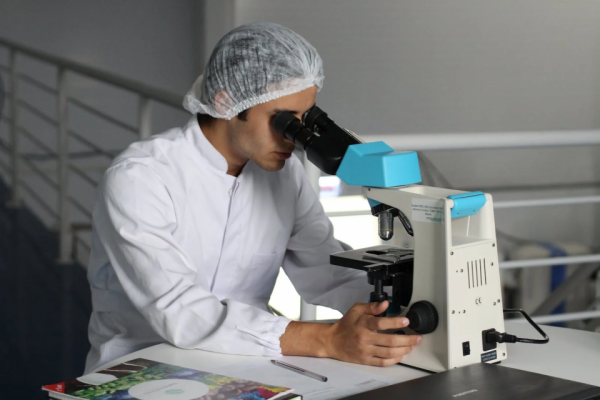
University of Bolton, Deane Road, Bolton. BL3 5AB
Tel:
Email:


“At the University of Bolton, we take great pride in providing a quality, supportive learning environment for our students.”
Professor George E Holmes DL | President & Vice Chancellor
“...tutors are very supportive and you’re not just a student ID number, at this university you are an individual with a name.”
Ellisse Vernon | BSc (Hons) Adult Nursing
Back to menu
Back to menu
Study with an Off-Campus Partner
Back to menu
Back to menu
University of Bolton, why we are the right choice
Location - Bolton, Greater Manchester

30/10/2023
Medicine is an ever-evolving field. We’re constantly opening doors to understand the human body better and crafting innovative ways to improve our health.
This blog discusses five significant medical advancements that have transformed healthcare and provide optimism for the future. These medicine innovations have had a profound impact on how we approach healthcare. They offer hope for a better future in the field of medicine.
CRISPR-Cas9 changed genetics by allowing accurate editing of DNA sequences, causing a huge shift in the field.
Scientists have harnessed CRISPR technology to target specific genetic codes and modify them. The potential applications are vast, from curing hereditary diseases to developing new strains of crops resistant to pests and drought.
The fine-tuning of our genes is no longer a distant dream but a tangible reality.

The battle against cancer witnessed a turning point with immunotherapy, another one of the most significant medical advances in recent times.
Unlike traditional treatments that attack the tumour directly, immunotherapy bolsters the patient's immune system to recognise and combat cancer cells. CAR-T cell therapy, for instance, involves modifying a patient's T-cells to target cancer cells specifically.
The outcomes have been promising, especially for those with previously untreatable forms of the disease.
Our body hosts trillions of microorganisms, collectively known as the microbiome, playing a crucial role in our health. Recent advances have allowed scientists to map and understand these communities in depth.
This knowledge has implications far beyond digestion. It affects everything from mental health to our body's immune response. Personalised medicine, tailored to a person's unique microbiome, might soon become the standard approach to treatment.
Traditional drug testing on animals or human cells in petri dishes has limitations. Enter the organ-on-a-chip – a micro-engineered device that mimics the structure and function of human organs.
This new idea improves drug testing and enhances the understanding of how medicines function in the body. It has the potential to revolutionise the pharmaceutical industry.
The digital age has ushered in a new era for healthcare delivery. Telemedicine allows patients to consult with healthcare professionals remotely, overcoming geographic barriers.
Wearable tech provides healthcare providers with real-time data on vital signs and health metrics. This helps with early diagnosis and timely interventions.

The road ahead looks promising, but this is only the beginning. If you want to play your role in future medical innovations, consider one of our Clinical and Biomedical Sciences courses at the University of Bolton. We’re committed to giving our students the knowledge and skills to make a real difference in medicine.
Studying Clinical and Biomedical Sciences here in Bolton offers an unparalleled experience. Not only do we provide top-tier facilities, access to the latest medical technology, and a curriculum tailored to the latest medical breakthroughs, but we are proud of our inclusive, supportive student community. Reach out to us at enquiries@bolton.ac.uk or dial 01204 903903. Your future in medicine awaits!